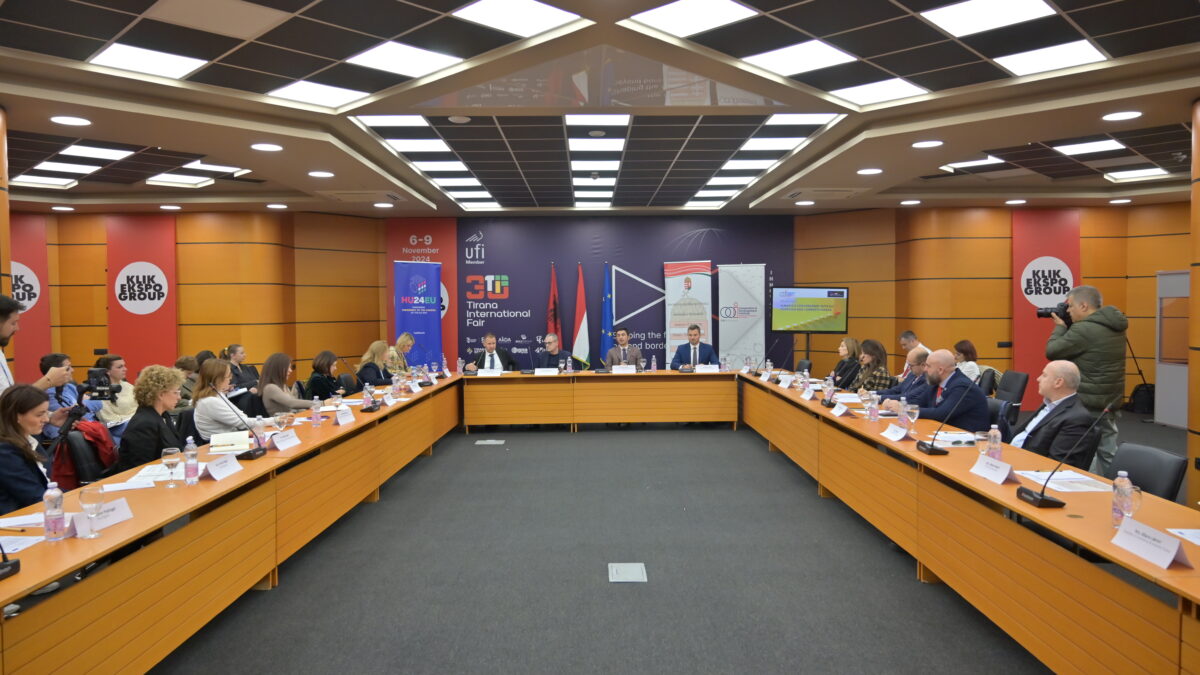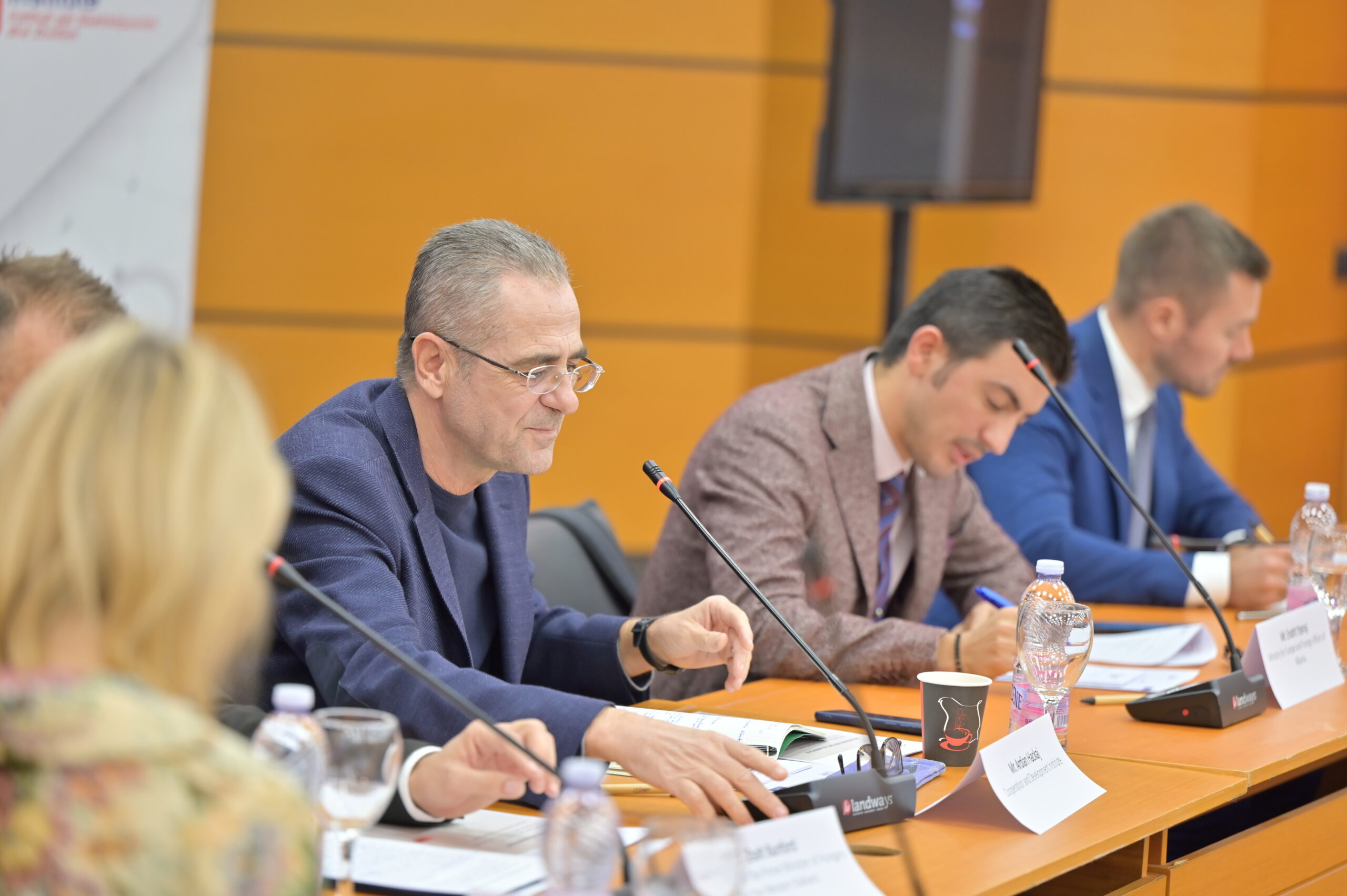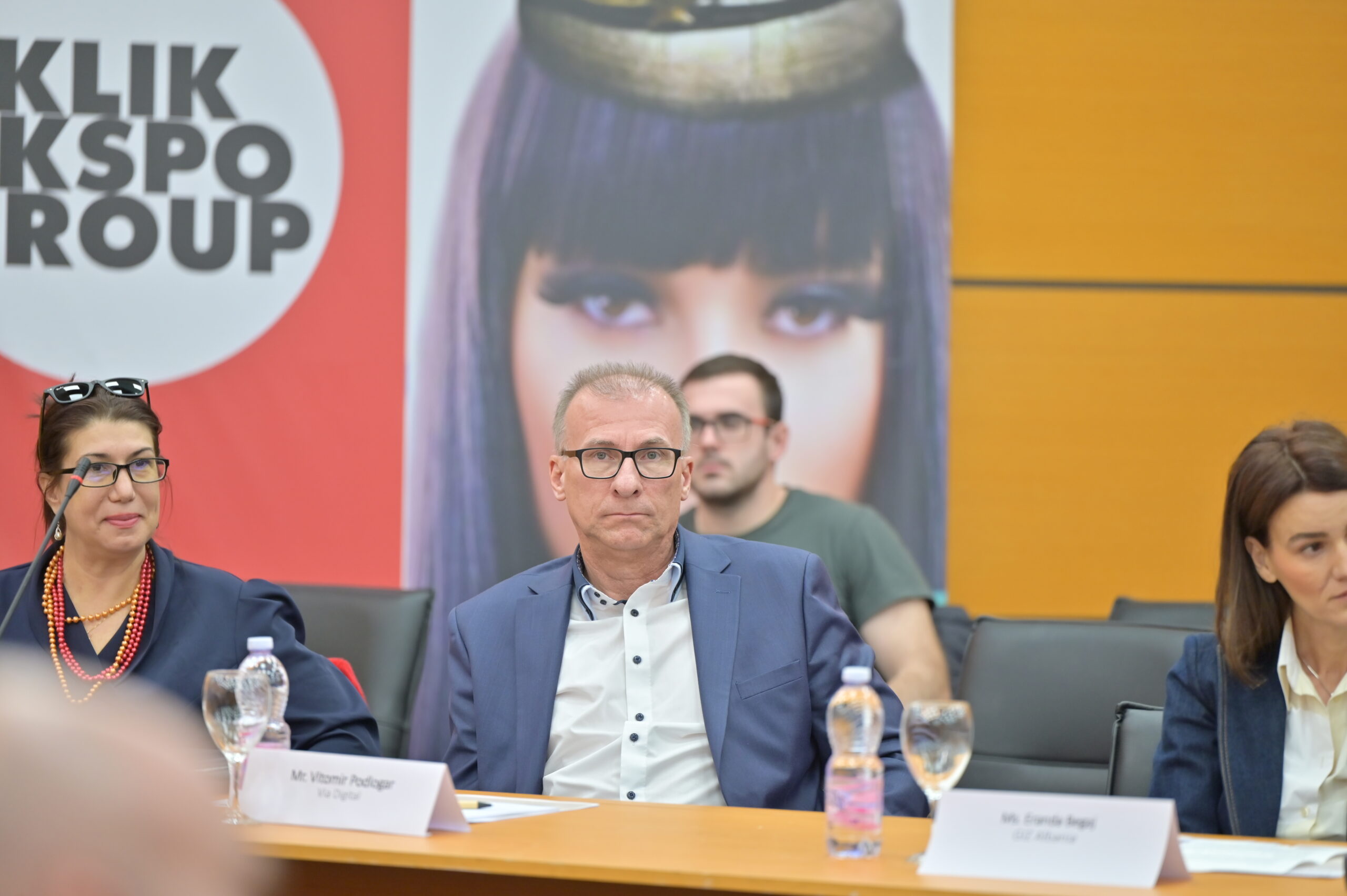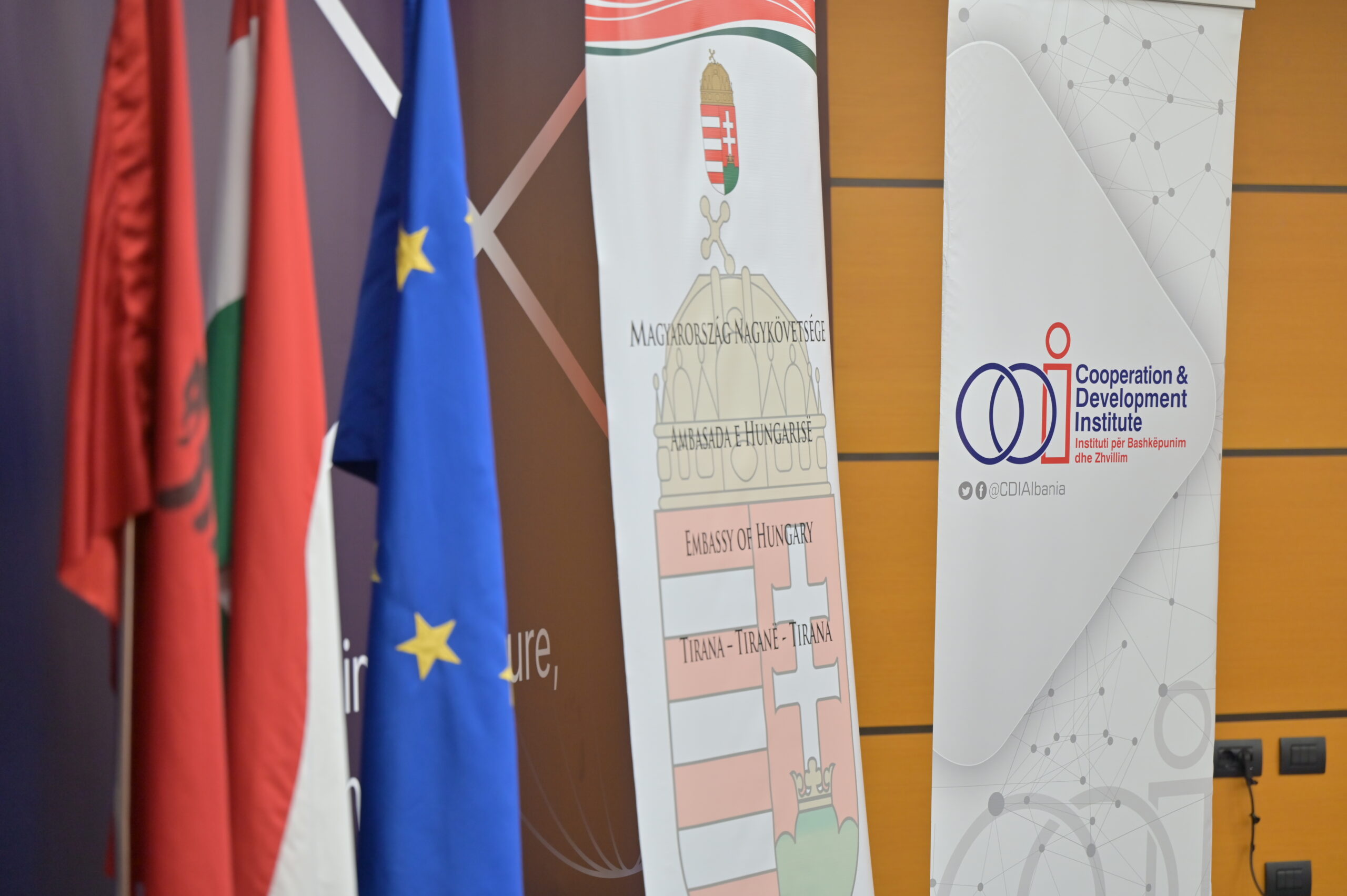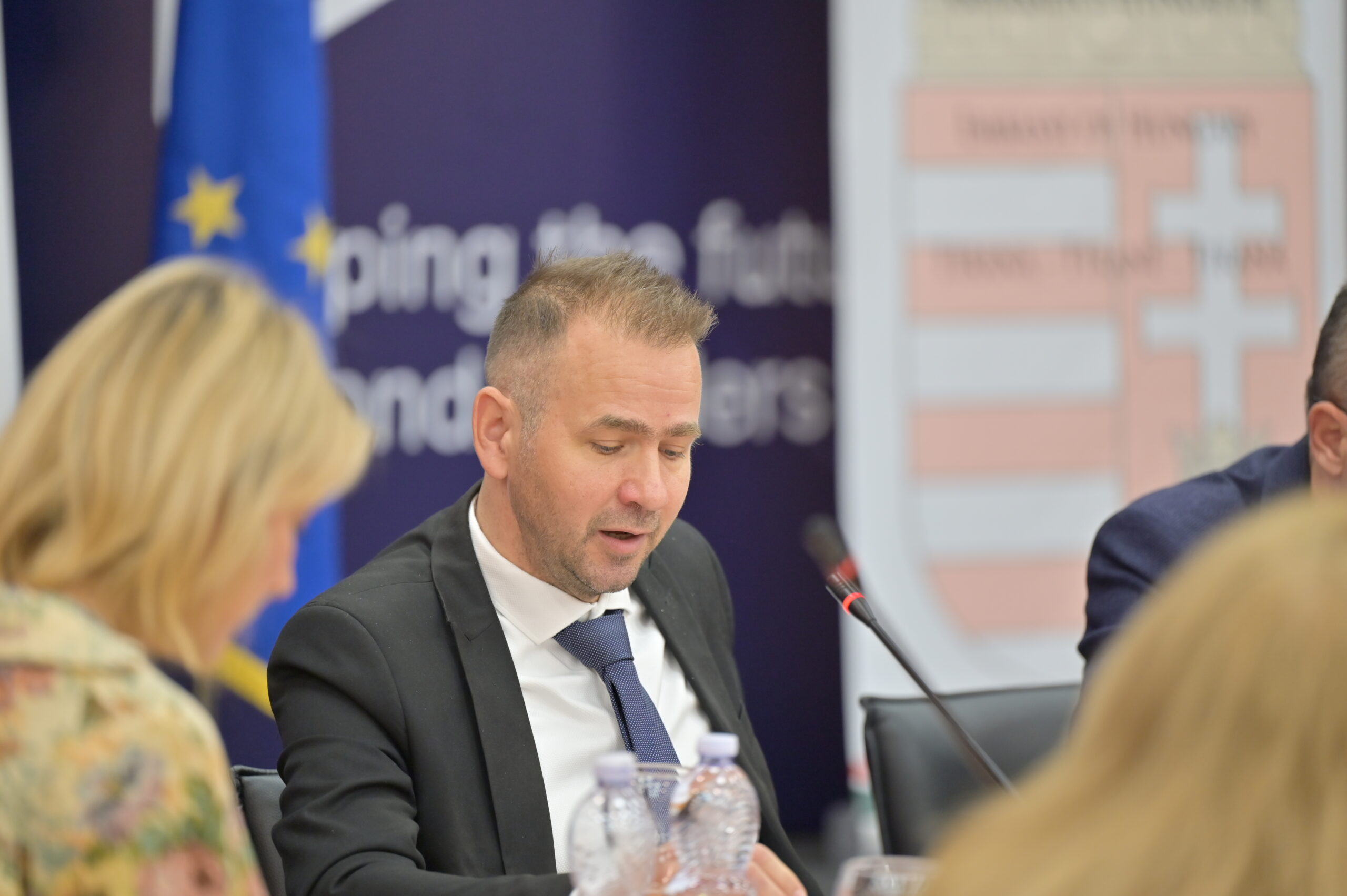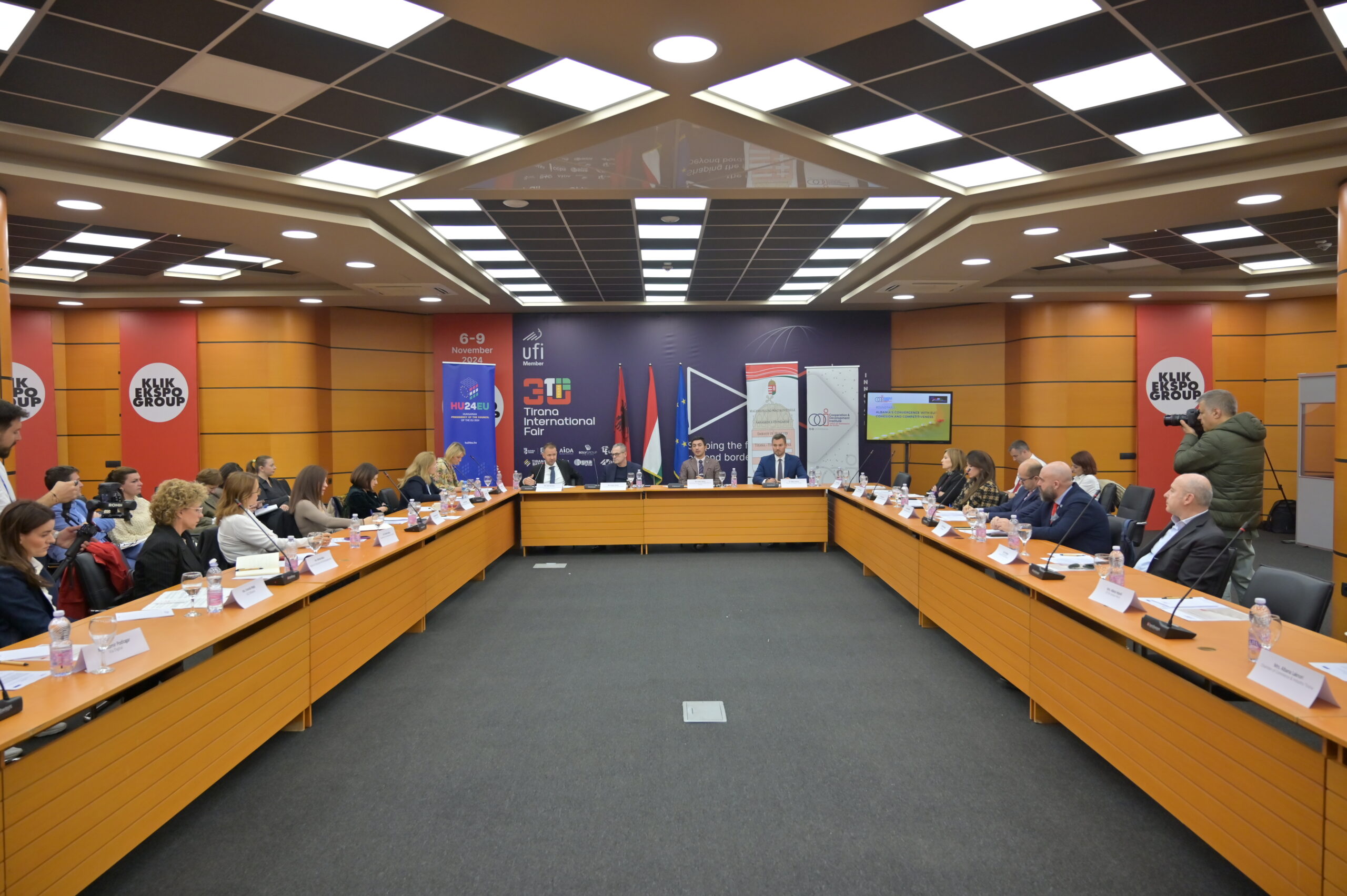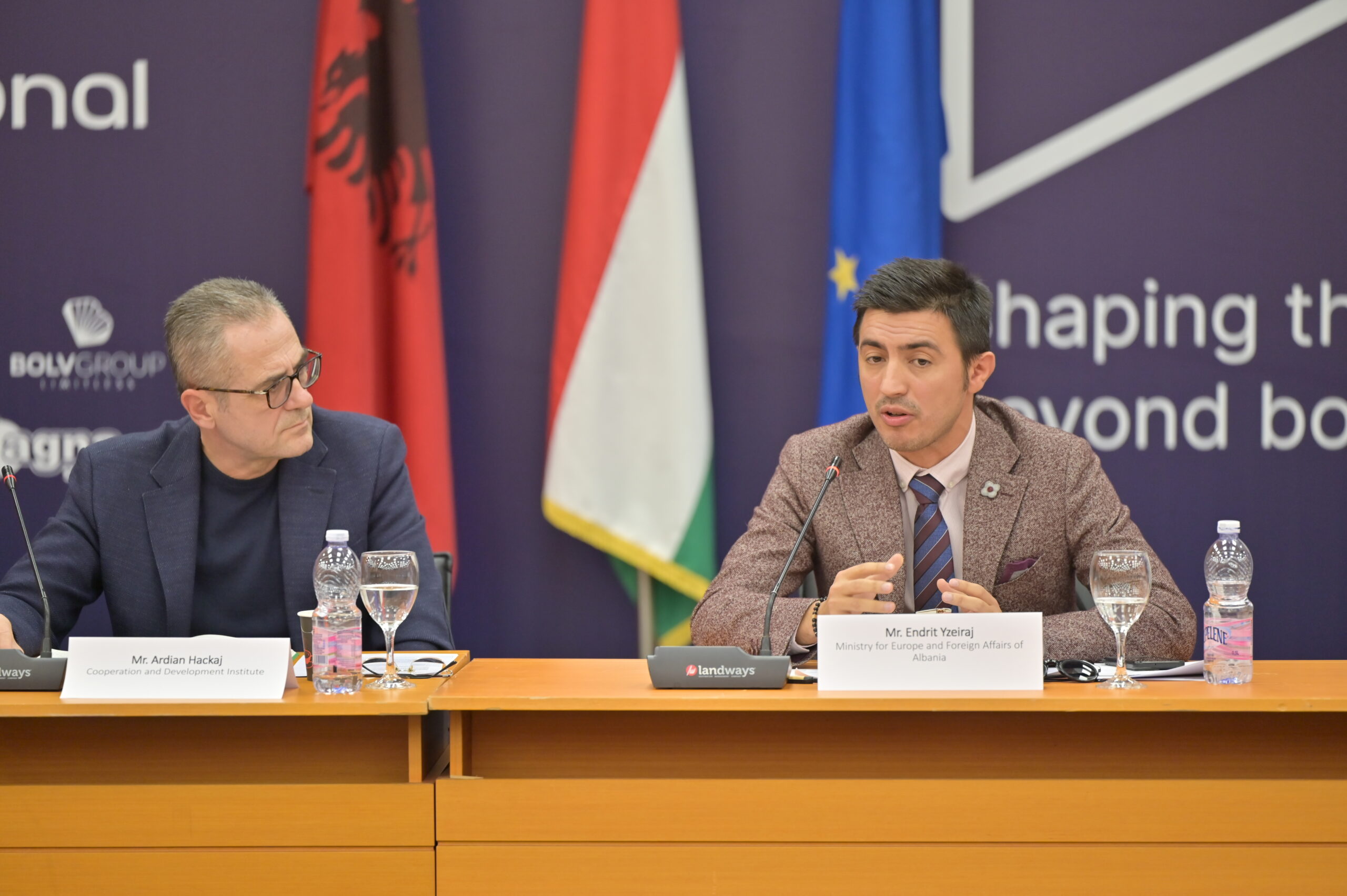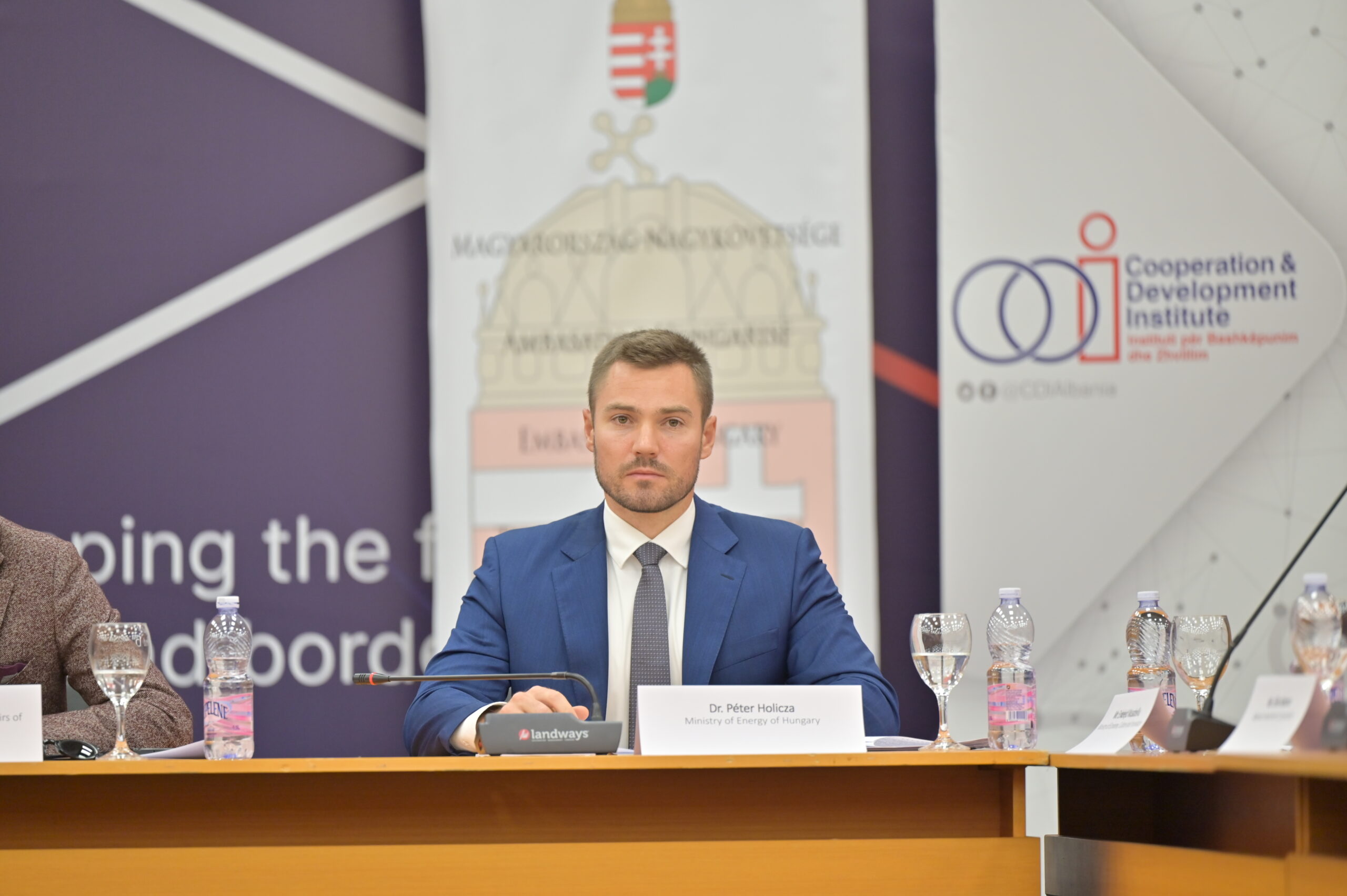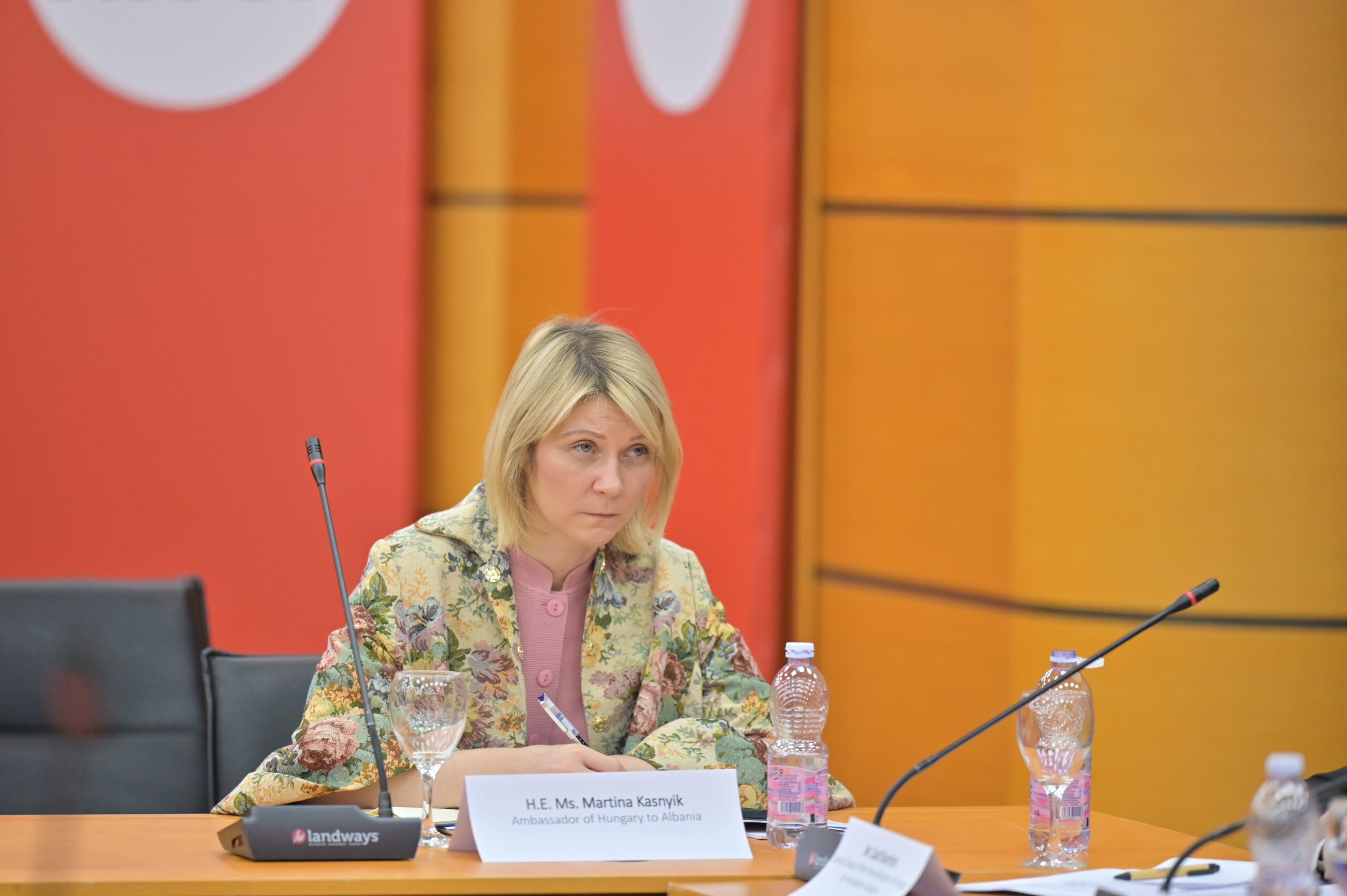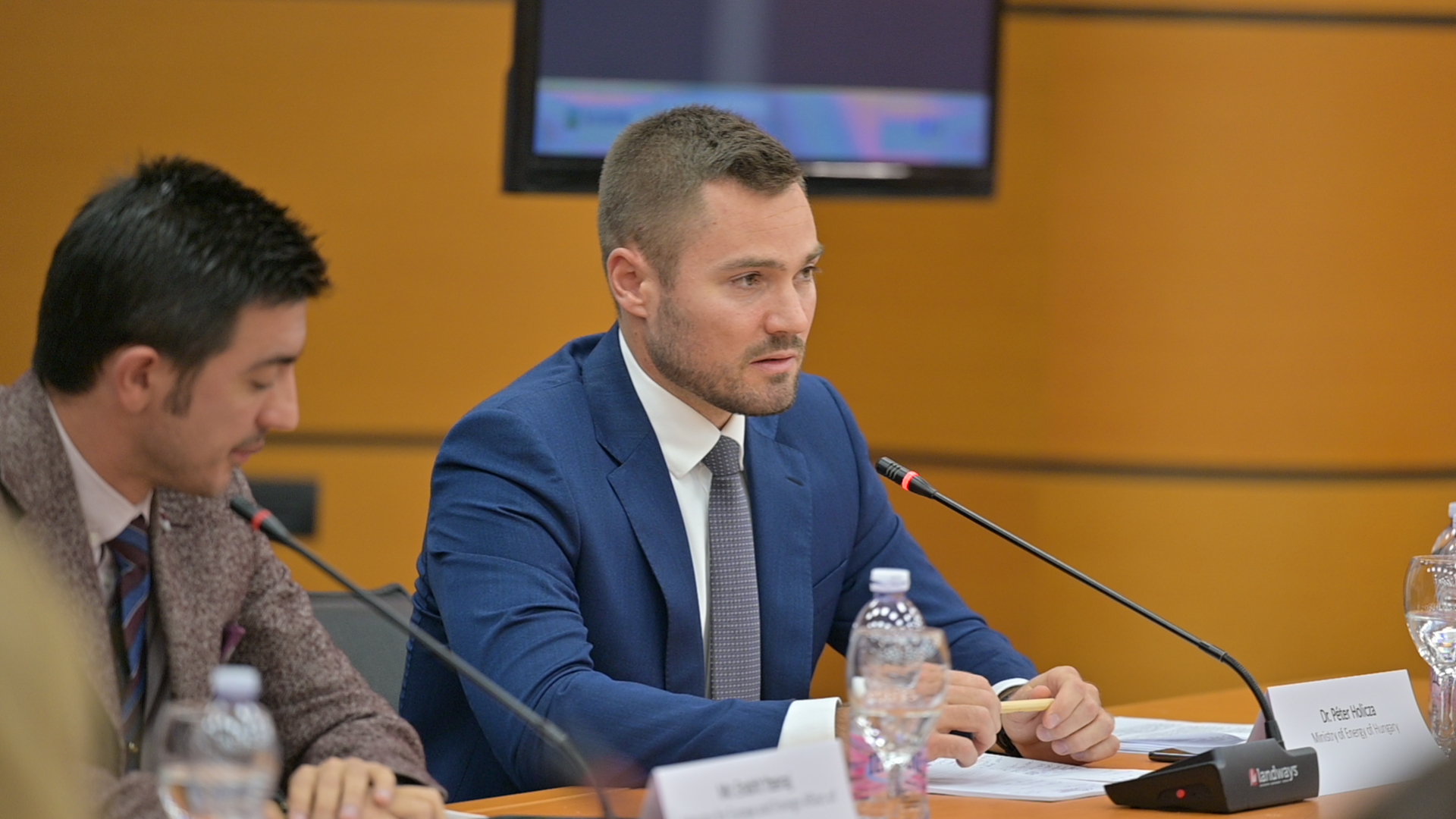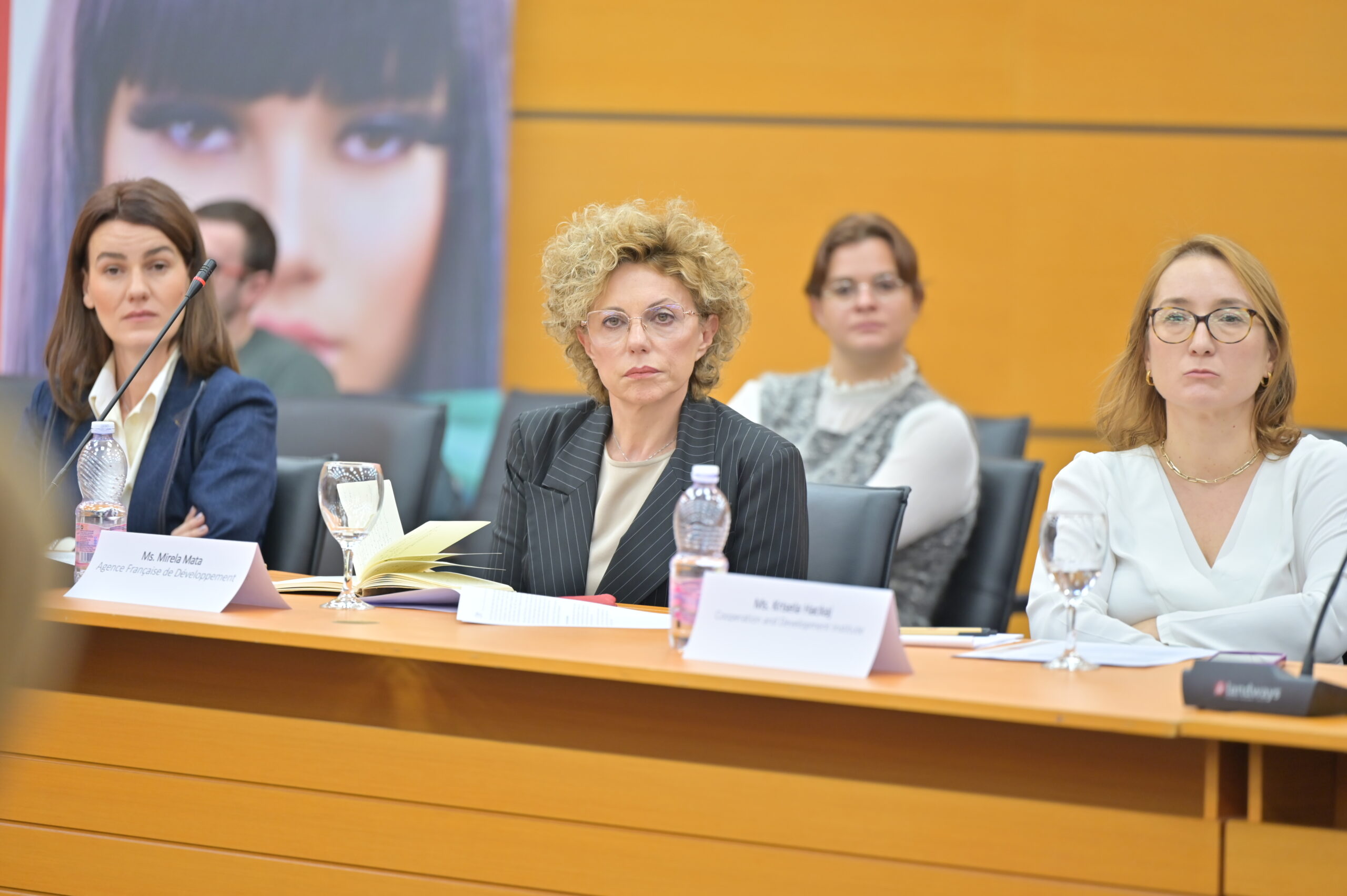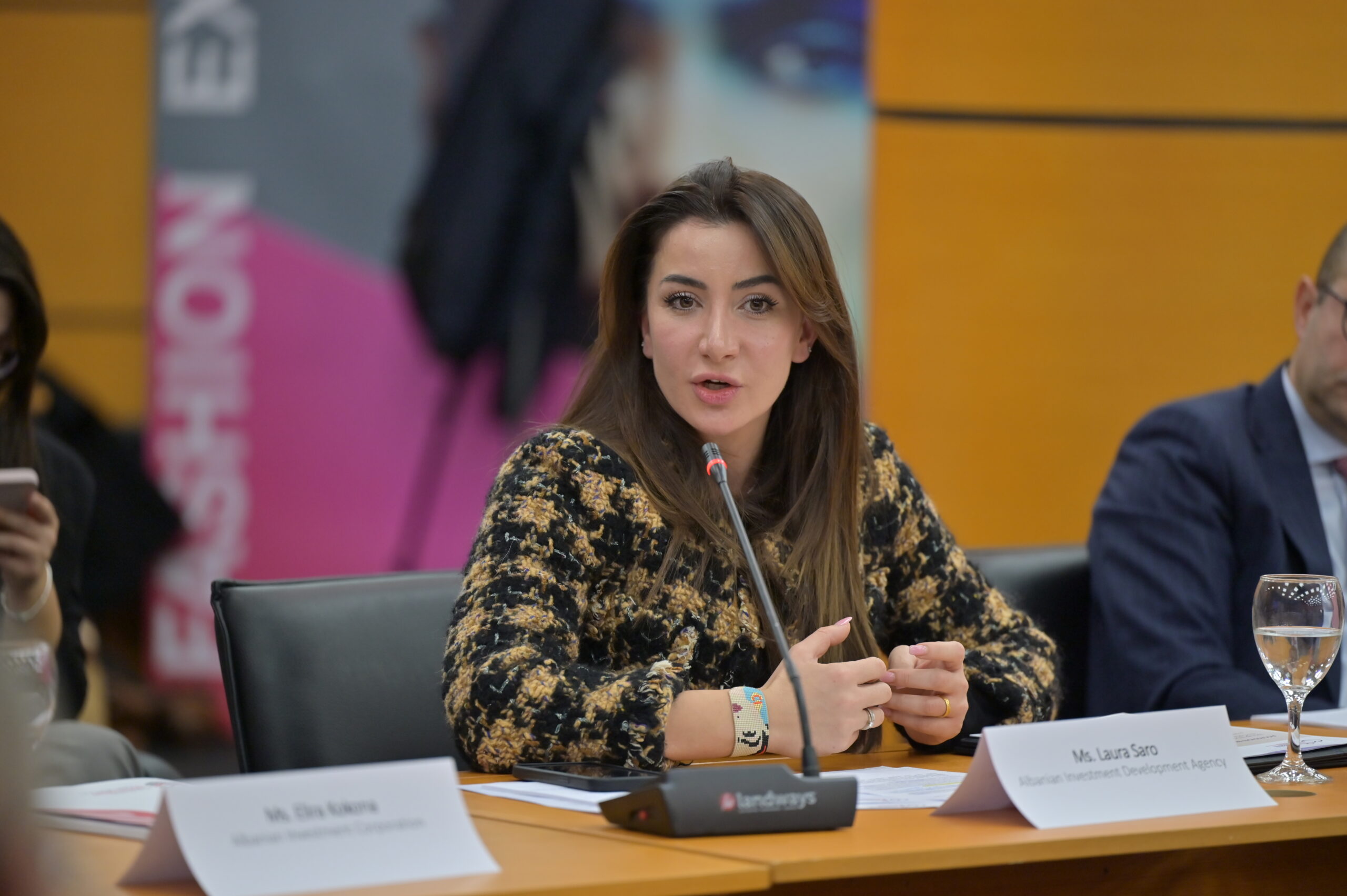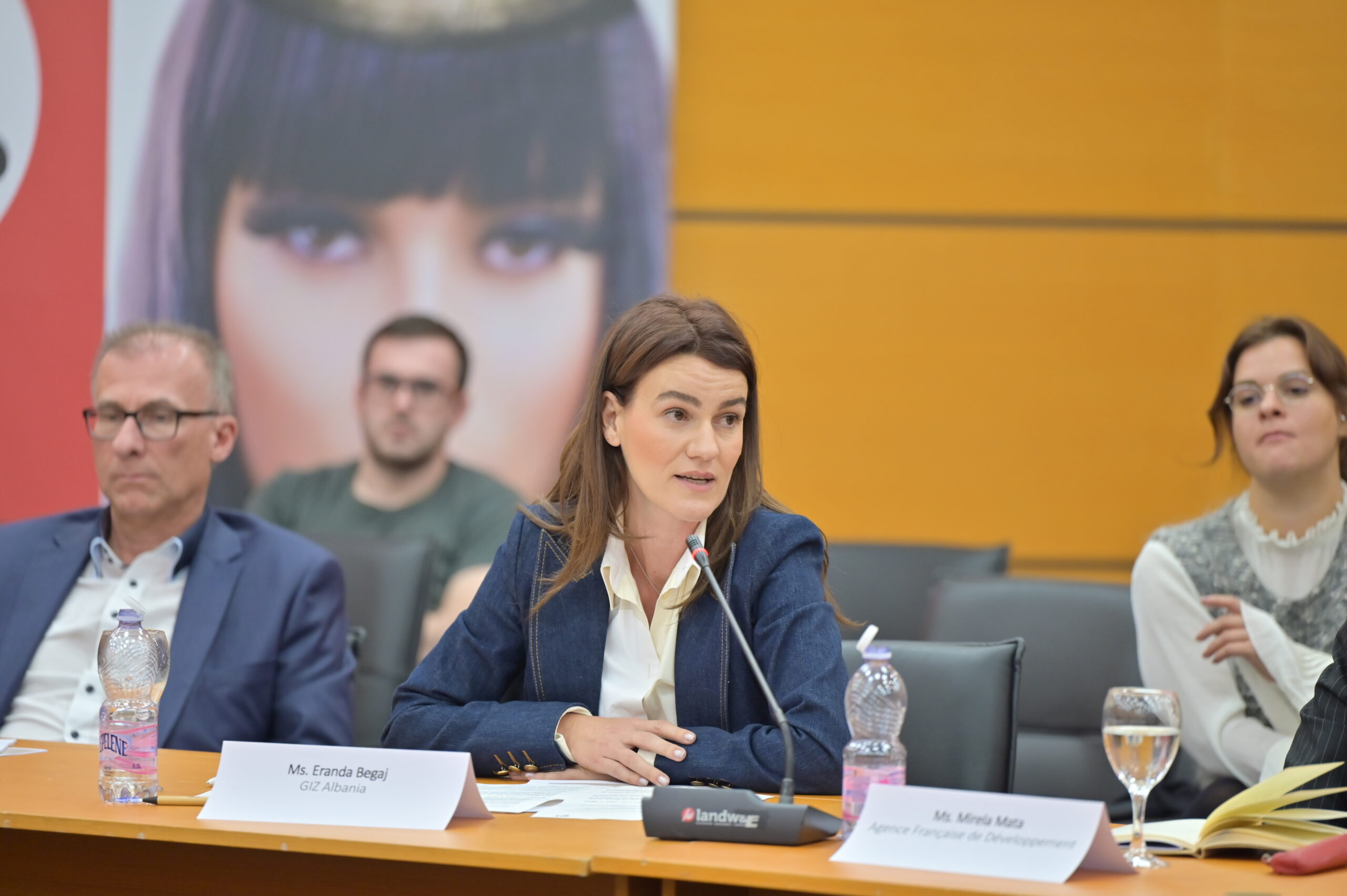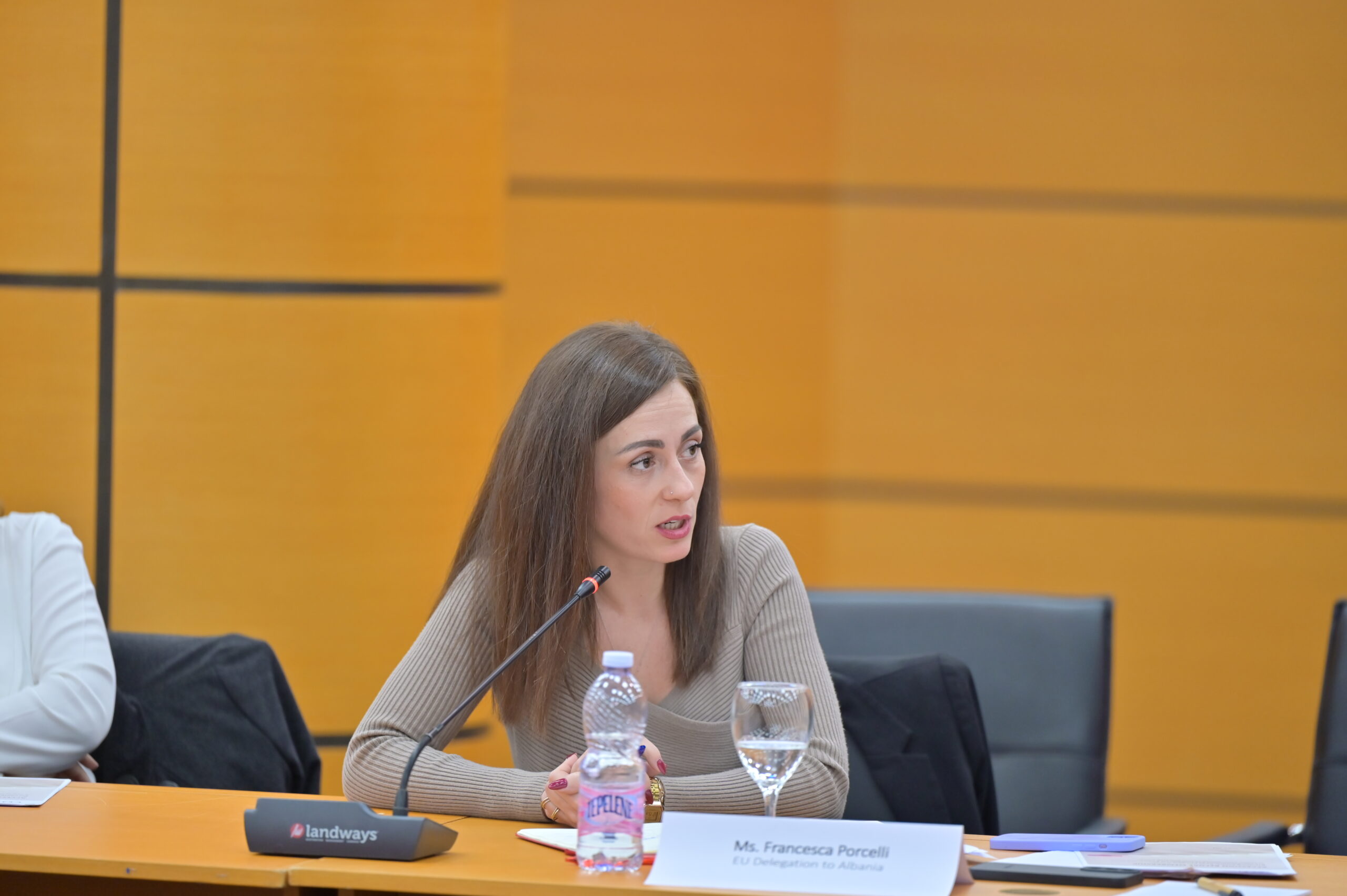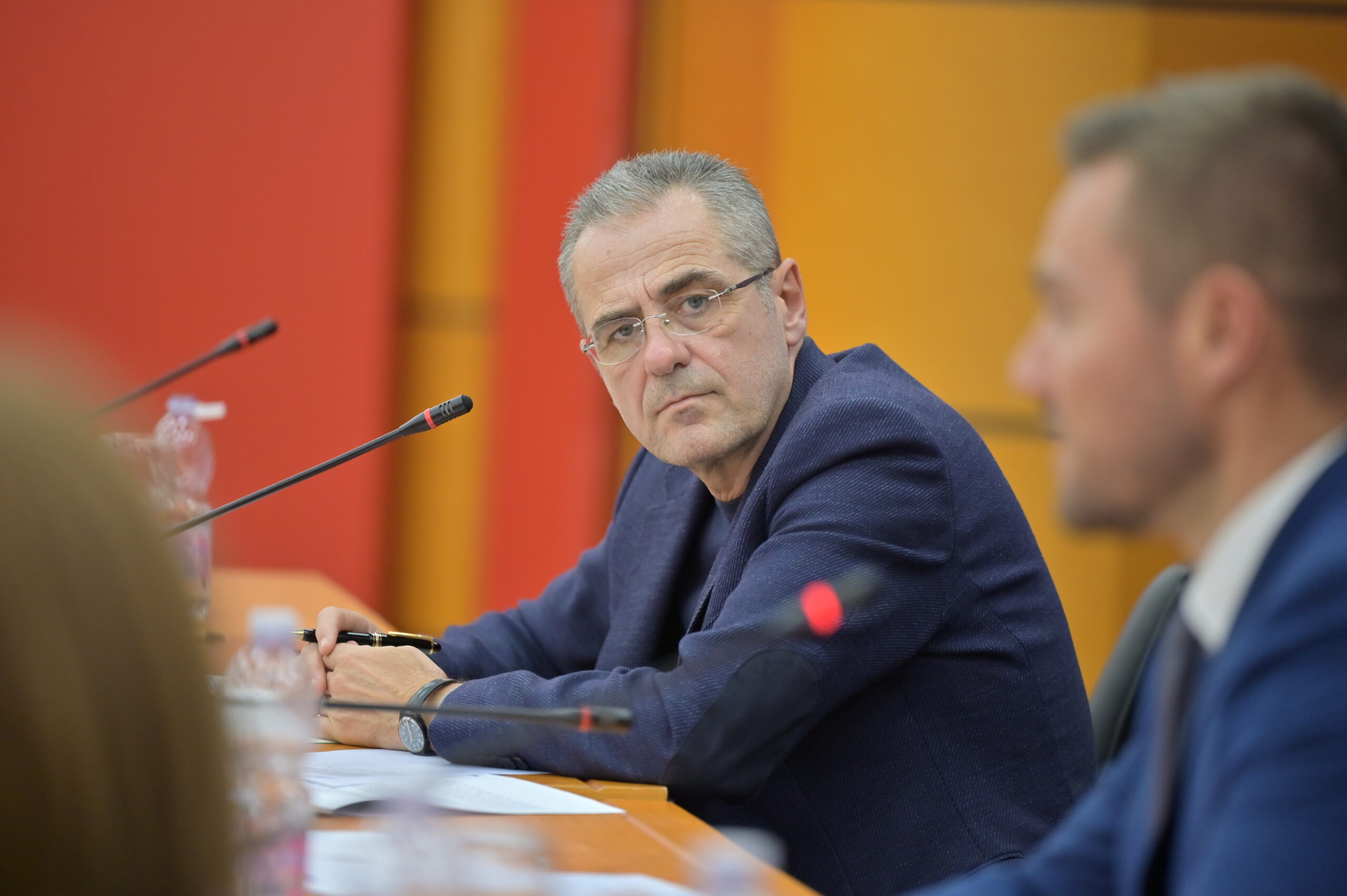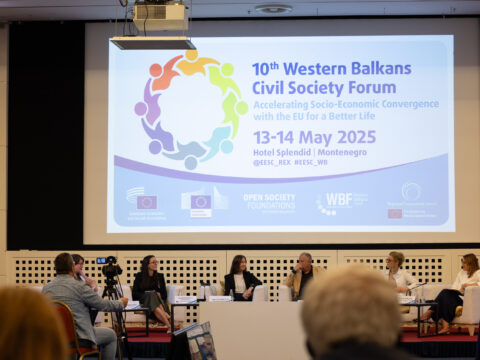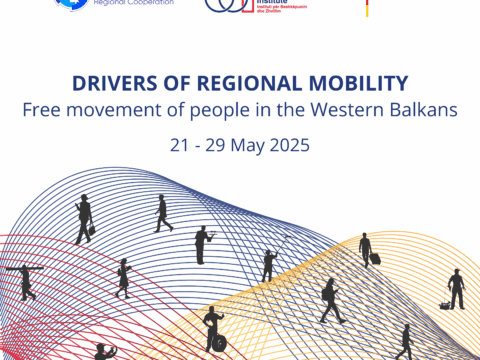TIRANA | The roundtable discussion titled “The Convergence of Albania with the EU: Cohesion and Competitiveness” was held in Tirana, gathering key Albanian stakeholders and representatives from European institutions to discuss the accelerated integration of Southeastern European 6 countries (SEE6) and their interaction with EU’s Cohesion and Competitiveness policies.
The event was organized by CDI in partnership with the Hungarian Presidency of the EU Council, ahead of the Budapest informal meeting of EU heads of state set of November 8.
One of the key takeaways of the roundtable was the shift in perspective on Albania and SEE6 region overall, not just as beneficiaries of EU funds, but as contributors to the strengthening of competitiveness and resilience of the Union, especially in a period marked by significant geopolitical changes.
Mr. Ardian Hackaj, Director of Research at the Cooperation and Development Institute, presented the rationale and main arguments behind “Accession before Membership,” suggesting that Albania and other SEE6 countries should have the opportunity to participate in the EU’s policymaking process before becoming full members. This would facilitate a smoother and more effective enlargement process, will boost cohesion, support EU competitiveness, and strengthen European resilience.
A key objective of the Hungarian Presidency of the EU Council is the adoption of a New European Competitiveness Deal that aims to restore economic development, promote sustainable growth, deepen the internal market, support small and medium-sized enterprises, and advance green and digital transitions. Including SEE6 region into the EU Competitiveness strategy will certainly benefit many EU sectors and economic actors, as well as the region itself.
Representing the Presidency, Mr. Zsolt Bunford, Special Envoy of Hungary for the Western Balkans underlined – among others – the 2027 deadline for Albanian negotiations with EU, historical role of SEE6 in all-European connectivity, the everchanging environment due to geopolitics and the need to narrow EU – SEE6 funding gap.
Albanian Deputy Minister for Europe and Foreign Affairs, Mr. Endrit Yzeiraj, outlined three key prerequisites for the SEE6 countries to achieve convergence with the EU: the implementation of institutional reforms, the enhancement of trade connectivity, and SEE6 inclusion in EU industrial policies.
Mr. Péter Holicza, Deputy State Secretary for EU Affairs and International Relations, Ministry of Energy of Hungary, outlined the importance of a cheap and green energy for EU competitiveness, need for grid development in SEE6, for market coupling, mobilization of private investing, need to base energy discussions on technical and industry standards, and the role that V4+ can have in the SEE6 region.
Ms. Elira Kokona, Executive Director of the Albanian Investment Corporation (AIC), highlighted ongoing efforts to enhance Albania’s competitiveness, positioning the country as a hub for major international fairs in the region. She also underscored the progress made in developing a competition regulatory framework, drawing on the best practices from the European Union.
Talking on competitiveness of Albanian businesses, Laura Saro, Executive Director of Albanian Investment Development Agency (AIDA), described the work being done in supporting Albanians SMEs in both their export strategy by increasing their capabilities and possibilities as well as access to export different platforms, as well as in attracting FDI.
Ms. Francesca Porcelli, Growth Plan Coordinator at the EU Delegation to Albania, described the Growth Plan as a key convergence and competitiveness tool. She emphasized the need for it to be implemented in a smart way and strategically, in parallel with the successful execution of reform agendas in the SEE6 countries, to make the region more attractive to foreign investors.
Mr. Arben Shkodra outlined the work of the Albanian National Economic Council in developing a smart specialization strategy focusing on economy of food, tourism, green energy, selected manufacturing segments, logistic and infrastructure around hubs.
Delivering key takeaways from the roundtable, Mr. Holicza promised further Hungarian support to Albania’s and SEE6 efforts to join the EU, and to keep Enlargement as a central subject in the EU agenda.



